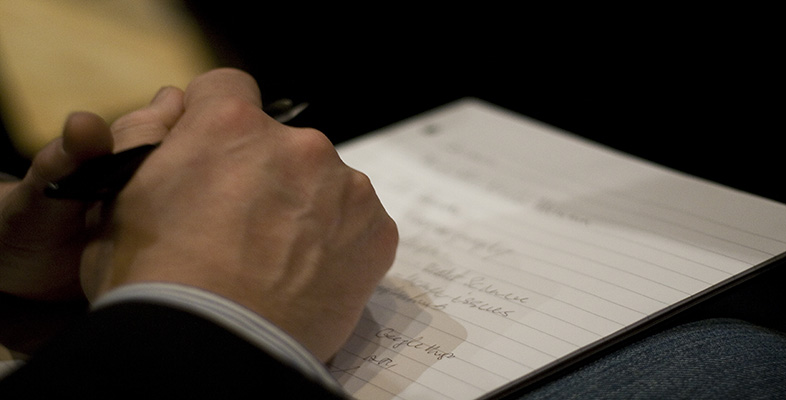1.4 Interviewing skills
Interviewing, whether in formal settings or within informal conversations, is a skilled activity. It’s something that we get better at with practice. So don’t worry if you don’t feel very skilled at asking questions to begin with; you will get better, but getting better requires you to do two things: first, get started even if you don’t do it perfectly; and second, once you’ve begun, notice and attend to the areas where you need to improve. Here are some common areas where you will need to think and work carefully to become a skilled interviewer.

Asking clear questions
I’ve mentioned this a couple of times already but it bears repeating; you do have to work at making sure that your questions are clear to your respondent. Sometimes what is obvious to you is less clear to others. So try out your questions on friends first; do they see what you’re getting at? Also, be careful about asking questions that are too simple; sometimes your respondent might think that you are trying to ‘get at something’ hidden. But remember that short questions are nearly always better than long, rambling questions that you need to explain.
Listening
This may seem obvious but it is so easy to hear what you want to hear rather than what is actually being said. Additionally, in less structured interviews, you need to listen carefully for signs that your respondent might want to say more or that they might want to shift the question a little. Is this a diversion or a valid shift in perspective? There are other times when your respondent will need some encouragement to tell their story – they might not be sure if you want to hear it! Listening inevitably involves us in making judgements about what we want or need to hear. As with asking clear questions, this is a skilled practice and one that you can only really learn as you get going and practise.
Judging when to push on with a line of questioning and when to stop
This is difficult: as an interviewer, you obviously have your agenda and there are times when you will want to stop your respondents heading off down a ‘blind alleyway’ or chasing a ‘red herring’; but there are other times when allowing your respondent to choose what they say will be helpful. Similarly, there are times when a respondent doesn’t seem to answer your question. How do you decide whether to push him to answer or leave him? Being too pushy can spoil the interview. As before, this skill needs practice; it’s almost as if you need to build up a ‘sixth sense’.
Have you noticed how I’ve kept returning to the point that you need to get underway with interviewing and asking questions before you become competent? This can be very difficult, even intimidating, to do. So often, we avoid doing things until we feel competent, but as with so many of life’s skills, we have to get started and improve as we go along.
Keeping notes during an interview
So how are you going to remember what people say to you? You won’t always be able to take notes, and listening carefully may often preclude taking them. I would strongly urge the use of digital recorders. They’re very small, pretty inexpensive and do the job of recording conversations. Of course, in an unplanned conversation it might be impossible to record, so I suggest that you either keep a small notebook in your pocket or handbag or use a digital recorder to record your memories of the conversation as soon as possible after you finish. There isn’t a perfect answer here, I’m afraid, but noting down what was said as soon as possible is very important.
